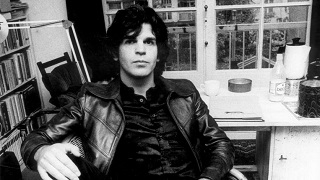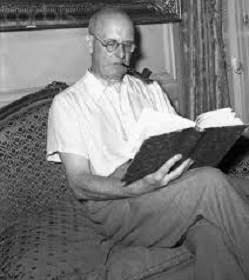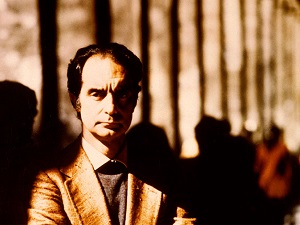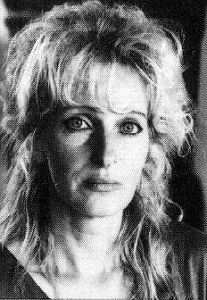De Nederlandse schrijver A. F. Th. van der Heijden werd geboren in Geldrop op 15 oktober 1951. Zie ook mijn blog van 15 oktober 2006 en ook mijn blog van 15 oktober 2007 en ook mijn blog van 15 oktober 2008.
Uit: The Movo Tapes
„Now that all parties directly involved are dead (only Movo’s daughter Jolente is still alive), I can finally unfold the story in its entirety. For my own entertainment and that of my fellows, all of whom still possess their own name.
Movo died six months ago, just before his fiftieth birthday. Since then, Jolente has been working with two employees of the Constantijn Huygens Institute on a compilation of excerpts from her father’s impossible magnum opus God’s Poems. The book has been announced for next autumn and will be published by De Spiegel, an imprint of the Hoek Keizersgracht-Spiegelstraat publishing company. It’s been in the papers and even made the TV news. I was moved to see that Hoek had survived all the mergers and reorganisations, as well as rising illiteracy, despite years of having to cope without the free advice of Movo’s grandfather, Olle Tornij. Their offices hadn’t even moved, they were still in the old building on the corner of Keizersgracht and Spiegelstraat. It seemed that they now came under the umbrella of an even larger group: Uitgeverijen Nederland & Vlaanderen BV, soon to be subsumed within European Publishers Ltd. The “highly distinctive character? of De Spiegel’s list would not be compromised, I read. Excellent, that means that Movo’s God’s Poems will reach the public, who for the first time will be able to read a book that cannot humanly be written, it testifies to that and bears the traces of that impossibility. Wonders will never cease.“
Uit: Der Anwalt der Hähne Vertaald door Helga van Beuningen)
„Montag, 29. April 1985
Er hätte besser daran getan, allein seinem Geruchs- und seinem Geschmackssinn zu trauen, und auch nur so weit, wie sie ihn seine eigene Verrottung riechen und schmecken ließen: Was sein Ohr auffing, war durch Angst bis zur Unkenntlichkeit verzerrt, unter seiner Berührung erhielten die Dinge auf der Stelle eine andere Haut, während seine Augen, sogar weit geöffnet, kaum mehr etwas anderes sahen als das Schauspiel, das sein vergiftetes Hirn für sich selbst inszenierte.
»Weg da. Weg, sag ich.«
Der erste verschaffte sich Zugang durch das Souterrainfenster, der zweite, indem er die Eingangstür mit einer Brechstange aufstemmte, woraufhin ein Dritter und ein Vierter sich an einem Seil im Lichthof herunterließen, an dem die Schlafzimmerfenster lagen. »Ksstt … haut ab! Laßt mich in Frieden.«
Nein, es war kein Traum. Er träumte nicht. Er schlief nicht. Er war schmerzhaft wach. Er hörte sie ins Haus eindringen einen nach dem anderen, zum Teil auch zu mehreren zugleich, konnte ihnen aber mit dem Gehör schon bald nicht mehr folgen. Immer wieder verlor er die Spur der Geräusche, und dann war es wieder still – bis erneut irgendwo ein Fenster aufgehebelt wurde. »He, ihr da. Macht, daß ihr wegkommt! «

De Duitse dichter, filosoof, filoloog en schrijver Friedrich Nietzsche werd geboren op 15 oktober 1844 in Röcken ten zuidwesten van Leipzig. Zie ook mijn blog van 15 oktober 2008.
Diesen ungewissen Seelen
Diesen ungewissen Seelen
Bin ich grimmig gram.
All ihr Ehren ist ein Quälen,
All ihr Lob ist Selbstverdruß und Scham.
Daß ich nicht an ihrem Stricke
Ziehe durch die Zeit,
Dafür grüßt mich ihrer Blicke
Giftig – süßer hoffnungsloser Neid.
Möchten sie mir herzhaft fluchen
Und die Nase drehn!
Dieser Augen hilflos Suchen
Soll bei mir auf ewig irregehn.
Nach neuen Meeren
Dorthin – will ich; und ich traue
Mir fortan und meinem Griff.
Offen liegt das Meer; ins Blaue
Treibt mein Genueser Schiff.
Alles glänzt neu und neuer,
Mittag schläft auf Raum und Zeit –
Nur dein Auge – ungeheuer
Blickt mich’s an, Unendlichkeit!
Das trunkene Lied
O Mensch! Gib acht!
Was spricht die tiefe Mitternacht?
“Ich schlief, ich schlief -,
aus tiefem Traum bin ich erwacht: –
Die Welt ist tief,
und tiefer als der Tag gedacht.
Tief ist ihr Weh -,
Lust – tiefer noch als Herzeleid:
Weh spricht: Vergeh!
doch alle Lust will Ewigkeit -,
– will tiefe, tiefe Ewigkeit!”

Friedrich Nietzsche (15 oktober 1844 – 25 augustus 1900)
Portret door Edvard Munch, 1906
De Russische dichter en schrijver Michail Joerjevitsj Lermontov werd geboren op 15 oktober 1814 in Moskou. Zie ook mijn blog van 15 oktober 2006. Zie ook mijn blog van 15 oktober 2008.
Der Engel
Den Mitternachtshimmel ein Engel durchzog,
Sang leise ein Lied, als er flog,
Der Mond und die Sterne, die Wolken gesamt,
Sie lauschten dem heiligen Liede gebannt.
Er sang von der Seligkeit sündloser Seelen
In den Gebüschen der Gärten von Eden,
Er sang von der göttlichen Größe, sein Lob
Keinesfalls trog.
Er trug eine Seele, die jung war, im Arm
In eine Welt voller Tränen und Harm;
Der Ton seines Lieds in der Seele noch lang
Lebendig auch ganz ohne Worte erklang.
Sie quälte im Weltlauf noch lange sich still
Von herrlicher Sehnsucht erfüllt,
Nie konnte verdrängen den himmlischen Klang
Der irdische, öde Gesang.
Schwarze Augen
Sommernacht hat viele Sterne;
Warum du nur ihrer zwei?
Südens Augen! Tiefe Schwärze!
Trafen uns zur schlechten Zeit.
Wer auch fragt, die Sternennächte
Sprechen nur vom Himmelsglück;
Schwarze Augen, eure Sterne
Sind mein höllisches Entzücken.
Südens Augen, schwarze Augen,
Las der Liebe Urteil hier,
Tages- und auch Nachtgestirne
Seid ihr seit dem Zeitpunkt mir! –
Herbst
Laub im Feld hat angefangen
Gelber kreisend zu entfliehn;
Nur im Nadelwald die Tannen
Hängen voller finstrem Grün.
Unter Felsens Überhange
Liebt’s der Schnitter schon nicht mehr,
Zwischen Blumen auszuspannen
Mittags von der Arbeit schwer.
Instinktiv fliehn wilde Tiere
Irgendwo in ihr Versteck.
Blasser Mondschein: nur noch silbern
Glänzt im Nebel schwach das Feld.

De Brits-Amerikaanse schrijver Grenville Wodehouse werd geboren op 15 oktober 1881 in Guildford. Zie ook mijn blog van 15 oktober 2006 en ook mijn blog van 15 oktober 2008.
Uit: Uncle Fred in the Springtime
“That pig is too fat.”
“Too fat?”
“Much too fat. Look at her. Bulging.”
“But my dear Alaric, she is supposed to be fat.”
“Not as fat as that.”
“Yes, I assure you. She has already been given two medals for being fat.”
“Don’t be silly, Clarence. What would a pig do with medals? It’s no good trying to shirk the issue. There is only one word for that pig—gross. She reminds me of my aunt Horatia, who died of apoplexy during Christmas dinner. Keeled over halfway through her second helping of plum pudding and never spoke again. This animal might be her double. And what do you expect? You stuff her and stuff her and stuff her, and I don’t supposed she gets a lick of exercise from one week’s end to another. What she wants is a cracking good gallop every morning and no starchy foods. That would get her into shape.”
Lord Emsworth has recovered the pince-nez which emotion had caused, as it always did, to leap from his nose. He replaced them insecurely.
“Are you under the impression,” he said, for when deeply moved he could be terribly sarcastic, “that I want to enter my pig for the Derby?”
The duke has been musing. He had not liked that nonsense about pigs being given medals and he was thinking how sad all this was for poor Connie. But at these words, he looked up sharply. An involuntary shudder shook him and his manner took on a sort of bedside tenderness.
“I wouldn’t, Clarence.”
“Wouldn’t what?”
“Enter this pig for the Derby. She might not win, and then you would have had all your trouble for nothing.”
We jump forward about 70 pages. Here the Duke is now discussing Lord Emsworth and his pig with Lord Ickenham. The Duke again begins the exchange.
“Here are the facts. He’s got a pig, and he’s crazy about it.”
“The good man loves his pig.”
“Yes, but he doesn’t want to run it in the Derby.”
“Does Emsworth?”
“Told me so himself”
Lord Ickenham looked dubious.
“I doubt the stewards would accept a pig. You might starch its ears and enter it as a greyhound for the Waterloo Cup, but not the Derby.”
“Exactly. Well, that shows you.”
“It does, indeed.”

De Italiaanse schrijver Italo Calvino werd geboren in Santiago de las Vegas op Cuba op 15 oktober 1923. Zie ook mijn blog van 15 oktober 2008.
Uit: The Adventure of a Poet (Vertaald door Tim Parks)
“THE LITTLE island had a high, rocky shoreline. On it grew the thick, low scrub, the vegetation that survives by the sea. Gulls flew in the sky. It was a small island near the coast, deserted, uncultivated: in half an hour you could circle it in a rowboat, or in a rubber dinghy like the one the approaching couple had, the man calmly paddling, the woman stretched out, taking the sun. As they came nearer, the man listened intently.
“What do you hear?” she asked.
“Silence,” he said. “Islands have a silence you can hear.”
In fact, every silence consists of the network of minuscule sounds that enfolds it: the silence of the island was distinct from that of the calm sea surrounding it because it was pervaded by a vegetable rustling, the calls of birds, or a sudden whirr of wings.
Down below the rock, the water, without a ripple these days, was a sharp, limpid blue, penetrated to its depths by the sun’s rays. In the cliff faces the mouths of grottoes opened, and the couple in the rubber boat were going lazily to explore them.
It was a coast in the South, still hardly affected by tourism, and these two were bathers who came from elsewhere. He was one Usnelli, a fairly well known poet; she, Delia H., a very beautiful woman.
Delia was an admirer of the South, passionate, even fanatical, and, lying in the boat, she talked with constant ecstasy about everything she was seeing, and perhaps also with a hint of hostility toward Usnelli, who was new to those places and, it seemed to her, did not share her enthusiasm as much as he should have.
“Wait,” Usnelli said, “wait.”
“Wait for what?” she said. “What could be more beautiful than this?”
He, distrustful (by nature and through his literary education) of emotions and words already the property of others, accustomed more to discovering hidden and spurious beauties than those that were evident and indisputable, was still nervous and tense. Happiness, for Usnelli, was a suspended condition, to be lived holding your breath. Ever since he began loving Delia, he had seen his cautious, sparing relationship with the world endangered; but he wished to renounce nothing, either of himself or of the happiness that opened before him. Now he was on guard, as if every degree of perfection that nature achieved around him a decanting of the blue of the water, a languishing of the coast’s green into gray, the glint of a fish’s fin at the very spot where the sea’s expanse was smoothest were only heralding another, higher, degree, and so on to the point where the invisible line of the horizon would part like an oyster revealing all of a sudden a different planet or a new word.
They entered a grotto. It began spaciously, like an interior lake of pale green, under a broad vault of rock. Farther on, it narrowed to a dark passage. The man with the paddle fumed the dinghy around to enjoy the various effects of the light. The light from outside, through the jagged aperture, dazzled with colors made more vivid by the contrast. The water there sparkled, and the shafts of light ricocheted upward, in conflict with the soft shadows that spread from the rear. Reflections and flashes communicated to the rock walls and the vault the instability of the water.
“Here you understand the gods,” the woman said.”

Italo Calvino (15 oktober 1923 – 19 november 1985)
De Nederlandse schrijfster Tessa de Loo (pseudoniem van Tineke Duyvené de Wit) werd op 15 oktober 1946 in Bussum geboren. Zie ook mijn blog van 15 oktober 2008.
Uit: De zoon uit Spanje
“De wijkverpleegster werd afgebeld, de kinderen wilden geen vreemden over de vloer op mijn verjaardag. Het gevolg hiervan was dat ik duizend doden stierf terwijl ik boven de po-stoel hing, aan een belachelijk onesthetisch apparaat dat tillift heet. Als een autowrak aan een hijskraan hing ik daar voor de ogen van mijn eigen dochter. Dit is het einde, zei ik tegen mezelf, ik ben er niet meer bij om dit mee te maken. Ik val niet meer samen met mijn lichaam, dat eropuit is me ook nog van mijn waardigheid te beroven. Hierbij verklaar ik mijn lichaam de oorlog, we kunnen onmogelijk langer bevriend blijven.
Zo begon die gedenkwaardige dag Ida, die nog heel wat verrassingen voor mij in petto had. Je denkt: ik ben oud en ziek, ik heb mijn plichten vervuld, nu komt de beloning. Vergeet het maar Ida, niet in dit leven.
Ik zou mijn gedachten wel eens even uit willen zetten. Innerlijke rust en stilte, dat is waar ik behoefte aan heb. In plaats daarvan hoor ik binnen in mijn hoofd mijn eigen stembuigingen, mijn eigen dictie en intonatie, steeds dezelfde zender met steeds hetzelfde programma. Het is onmogelijk op bestelling aangename, milde gedachten te krijgen waarop je prettig kunt wegzeilen.
Je denkt toch niet dat ik medelijden heb met mezelf? En wat dan nog? Als niemand anders het heeft? Ik zou je laten lachen, zeg je, goed dan.
Ze hadden de kamer versierd en overal stonden vazen met bloemen. Mijn rolstoel werd naar het raam gereden, zodat ik naar buiten kon kijken. En daar zag ik op die druilerige dag in mei, terwijl de takken van de struiken bogen onder het gewicht van regendruppels, mijzelf als jonge man, blakend van gezondheid, druk aan het spitten in de tuin. Af en toe komt hij overeind om met zijn zakdoek het zweet van zijn voorhoofd te vegen, vergenoegd om zich heen kijkend. Hou maar op, roep ik hem toe, hou op met dat idiote gespit en wees zuinig op je spieren! Zet je schop in de schuur en laat de natuur haar gang gaan. Ze doet sowieso wat ze wil vroeg of laat, de natuur.
‘Ik heb zin in een borrel,’ zeg ik.
‘U weet best dat u geen sterke drank mag.’ Hilde is compromisloos op dit punt.
‘Zelfs ter dood veroordeelden krijgen een galgenmaal,’ protesteer ik, ‘gun een man die stervende is toch zijn opkikkertje.”

Tessa de Loo (Bussum, 15 oktober 1946)
De Amerikaanse schrijver Mario Puzo werd geboren in New York op 15 oktober 1920. Zie ook mijn blog van 15 oktober 2008.
Uit: The Godfather
“Amerigo Bonasera sat in New York Criminal Court Number 3 and waited for justice; vengeance on the men who had so cruelly hurt his daughter, who had tried to dishonor her.
The judge, a formidably heavy-featured man, rolled up the sleeves of his black robe as if to physically chastise the two young men standing before the bench. His face was cold with majestic contempt. But there was something false in all this that Amerigo Bonasera sensed but did not yet understand.
“You acted like the worst kind of degenerates,” the judge said harshly. Yes, yes, thought Amerigo Bonasera. Animals. Animals. The two young men, glossy hair crew cut, scrubbed clean-cut faces composed into humble contrition, bowed their heads in submission.
The judge went on. “You acted like wild beasts in a jungle and you are fortunate you did not sexually molest that poor girl or I’d put you behind bars for twenty years.” The judge paused, his eyes beneath impressively thick brows flickered slyly toward the sallow-faced Amerigo Bonasera, then lowered to a stack of probation reports before him. He frowned and shrugged as if convinced against his own natural desire. He spoke again.
“But because of your youth, your clean records, because of your fine families, and because the law in its majesty does not seek vengeance, I hereby sentence you to three years’ confinement to the penitentiary. Sentence to be suspended.”
Only forty years of professional mourning kept the overwhelming frustration and hatred from showing on Amerigo Bonasera’s face. His beautiful young daughter was still in the hospital with her broken jaw wired together; and now these two animales went free? It had all been a farce. He watched the happy parents cluster around their darling sons. Oh, they were all happy now, they were smiling now.”

Mario Puzo (15 oktober 1920 – 2 juli 1999)
De biografische data zijn onzeker en berusten op verhalen en legenden, maar de internationale internet encyclopedie Wikipedia geeft 15 oktober 70 v. Chr. als geboortedatum van Publius Vergilius Maro. Zie ook mijn blog van 15 oktober 2006 en ook mijn blog van 15 oktober 2008.
Uit: Aeneis II Vertaald door P. W. de Koning)
“Allen zwegen daarop en richtten den blik op Aeneas,
Stil van aandacht, en deze begon van den statigen rustbank:
“O koningin, ’t is een vreeselijk leed dat gij vraagt te hernieuwen,
Hoe de Danaërs de macht en ’t beklagelijk rijk der Trojanen
Uiterlijk delgden van de aard: wat ik zelf in zijn jamren aanschouwde,
Waar ik wel mijn rol heb gespeeld. Wie hield, bij ’t verhalen,
Myrmidoon of Doloop of soldaat van den harden Ulysses,
Dan nog zijn tranen terug. En zie, aan den vochtigen hemel
Daalt reeds de nacht en ’t verglijdend gestarnte vermaant ons tot sluimer.
Maar, is uw liefde zóó groot, het verhaal onzer rampen te kennen,
En in ’t kort den uiteindlijken strijd van Troje te hooren,
Dan, schoon mijn ziel die herinnering gruwt en nog immer terugschrok –
Dan maak ik aanvang. Door d’oorlog verzwakt en door ’t noodlot weerhouden,
Waar zoo jaar op jaar al vergleed, vervaardigden toen de
Vorsten der Grieken een paard, (naar de kunst van de hemelsche Pallas),
Groot als een berg, en bekleedden zijn ribben met planken van dennen,
Liegende dat het een wijgeschenk was, voor een veilige thuiskeer.
Zóó het gerucht. Toen lootten ze en sloten den kern van hun leger
In zijn duisteren flank en vulden, ter sluiks, het geheele
Ruim van dat ontzaglijke lijf met gewapende benden.
Nog in ’t gezicht van den wal ligt Tenedos, eens zoo roemruchtig,
Eens welvarend en rijk, toen Priamus’ koningschap duurde,
Thans een kwalijk betrouwbare ree en een baai voor de schepen.

Buste bij de ingang van zijn graf in Napels
